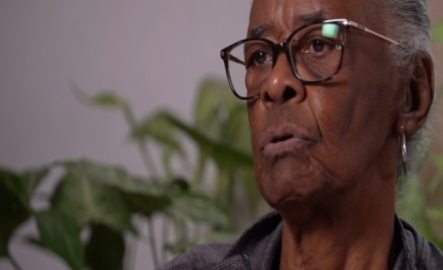Peloton instructor Hannah Corbin is opening up about her battle with extreme fatigue to raise awareness of Hashimoto’s disease, a condition that left her nodding off on subway rides across New York City.
In a candid essay for the Huffington Post, Corbin revealed how years of doctor visits failed to uncover the cause of her exhaustion, until she was finally diagnosed with Hashimoto’s — the most common form of hypothyroidism.
The thyroid plays a crucial role in regulating weight, energy, and other bodily functions, and when it’s under-active, it can lead to a shortage of essential hormones, as reported by Daily Mail.
Nearly 20 million Americans live with some form of thyroid disease, but up to 60 percent are unaware of their condition and its risks.
For Corbin, symptoms began five years ago with an overwhelming exhaustion that she still finds difficult to describe.
“I felt like an infant who could barely stay awake for four hours before needing a nap, and I was grappling with unexplained weight gain, too,” she wrote.
Corbin said she was still able to teach her Peloton classes, but “more and more it felt like scaling Mt. Everest just to get through the entirety of a class with my eyes open.
“I’d manage to teach a session or two only to fall asleep on the subway on the way home,” she said.
“I started waking up in different boroughs, which might have almost been funny if it hadn’t started to feel so dangerous.
“I felt like a shadow of my former self, displaying only a shell of my personality.”
At first, Corbin said she was willing to try anything to feel better, changing her diet and doubling down on exercise.
“I was convinced that if I just pushed hard enough, I’d turn things around.”
But that did not seem to help.
For two years, Corbin sought answers from doctors, but her symptoms were dismissed as likely due to her demanding job and not serious enough to warrant concern.
Despite this, her family remained worried, frustrated, and unsure of how to help.
“Eventually, I felt like I had to take a step back from socializing and hanging out with the people I loved because I did not feel like myself anymore
“My husband and my friends saw this change in me and encouraged me to keep pushing for the answers I needed,” she said, noting that she “knew something needed to change” and “refused to give up.”
She was ultimately diagnosed with Hashimoto’s, which she called a “mixed blessing.”
“I finally had an explanation for my symptoms, but it also meant accepting life with a chronic autoimmune condition and redefining what ‘healthy’ meant to me,” Corbin wrote. “I worried, ‘Where on Earth do I go from here?”‘
After being prescribed medication to regulate her thyroid hormone levels, she gradually started to regain energy and began enjoying her days instead of dreading them.
“I shifted my focus to nutritious foods, exercising for fun again instead of desperation, and carefully monitoring my health.”
“I felt a bit betrayed by my own body, and let down by the medical system,” she continued. “But I also found a new sense of purpose. Instead of focusing on what my body can’t do, I started being in awe of what it can do.”
Corbin learned that Hashimoto’s disease puts her at a higher risk for Thyroid Eye Disease, which can cause symptoms like double vision, eye bulging, pain, and vision loss.
This prompted her to take extra care of her eyes.
“I’ve also learned throughout this process that however unique I may be, my story is not,” she said.
Hashimoto’s disease is four to 10 times more common in women than men, typically affecting women between the ages of 30 and 50, though it can also occur in teens or young women.
It’s most prevalent in those with other autoimmune conditions like celiac, diabetes, and lupus. Common symptoms include fatigue, weight gain, joint pain, dry skin, constipation, fertility issues, and slowed heart rates.
Corbin is now sharing her story to build a supportive community where people can laugh, support one another, and even break into spontaneous dance parties.
“Life’s too short not to have a little fun while navigating the twists and turns,” she wrote.










